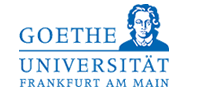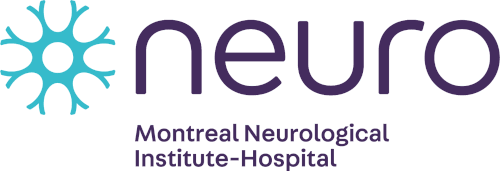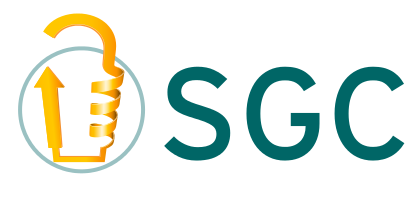 |
 |
 |
 |
 |
 |
Open-source partnership to uncover role of epigenetic regulation in Rett Syndrome
Toronto, ON (April 17th, 2015) - The Structural Genomics Consortium (SGC) at the University of Toronto and the Ontario Brain Institute (OBI) have entered into an “open-source” research partnership with two Toronto-based hospitals to test tool compounds, called chemical probes, against epigenetic proteins in research models of Rett syndrome.
The Hospital for Sick Children (SickKids) and University Health Network (UHN) will receive OBI funding and compounds from SGC and will utilize their respective expertise and disease models to advance our understanding of this disease and identify potential treatments. Due to the open-source nature of the partnership, researchers have agreed explicitly not to file for patents on any of the resulting discoveries related to the collaboration.
The SGC’s tool compounds are the product of a global public-private partnership that includes a network of researchers in hundreds of academic institutions and ten of the world’s leading pharmaceutical companies. By specifically inhibiting a protein in a disease model, the chemical probes can be used to validate proteins as potential drug targets for that disease.
“We are delighted to collaborate with leading Rett investigators in top Canadian hospitals in order to learn more about the disease and hopefully come up with new treatment strategies,” said Dr. Aled Edwards, Director and CEO at SGC.
This new partnership folds into one of OBI’s key research initiatives—the Province of Ontario Neurodevelopmental Disorders (POND) Integrated Discovery Program. The multidisciplinary program brings together researchers, clinicians, industry partners, and patients and their advocates to take a new approach to addressing neurodevelopmental disorders including autism spectrum disorder, obsessive compulsive disorder (OCD), and attention deficit hyperactivity disorder (ADHD).
“OBI is pleased to be a part of an exciting new partnership that fosters new collaborations among experts involved in the study and treatment of neurodevelopmental disorders like Rett Syndrome,” said Dr. Donald Stuss, President and Scientific Director, Ontario Brain Institute. “We believe that this kind of cooperation is precisely what is needed to maximize the value of important resources and drive discovery in novel ways.”
The collaboration to test the epigenetic chemical probes for Rett syndrome is part of a larger SGC Open Source Target Discovery Partnership with clinical hospitals that will focus on a range of diseases from neuroscience to oncology.
“This is a unique partnership that we are excited to be a part of. By leveraging the expertise, resources and innovations through the lab of our contributing researcher, Dr. James Eubanks, we hope to have progress against this disease in a way that will have an impact for patients and families that are affected by it,” said Dr. Donald Weaver, Director of the Toronto Western Research Institute, a member of UHN.
“Ontario is proud to support and encourage open source partnerships that help accelerate scientific discoveries from the lab to the marketplace and into patient treatments,” said Reza Moridi, Ontario Minister of Research and Innovation. “These collaborations will help lead to better health outcomes for people in Ontario and around the world, and further Ontario’s capacity to compete in a competitive global economy.”
In line with the SGC’s open access policy, results, tools and knowledge from the collaborative projects will be openly shared with the wider research communities without restrictions.
About Structural Genomics Consortium (SGC)
The SGC accelerates research in new areas of human biology and drug discovery by making all its research output available to the scientific community with no strings attached, and by creating an open collaborative network of scientists in hundreds of universities around the world and in ten global pharmaceutical companies. SGC currently operates from the University of Toronto (Canada), Oxford University (UK) and UNICAMP (Brazil) and is funded by Abbvie, Bayer, Boehringer Ingelheim, Canada Foundation for Innovation, Eli Lilly Canada, Genome Canada, GlaxoSmithKline, Janssen, Merck, Novartis, Ontario Ministry of Research & Innovation, Pfizer, Takeda, and the Wellcome Trust. For more information about the SGC, please visit www.thesgc.org.
About Ontario Brain Institute (OBI)
The Ontario Brain Institute is a provincially‐funded, not‐for‐profit research centre seeking to maximize the impact of neuroscience and establish Ontario as a world leader in brain research, commercialization and care. We create convergent partnerships between researchers, clinicians, industry, patients, and their advocates to foster discovery and deliver innovative products and services that improve the lives of those living with brain disorders. For more information visit: www.braininstitute.ca
About Rett syndrome
Rett Syndrome is a rare genetic disorder that affects neurodevelopment primarily in girls. Children with Rett syndrome spontaneously experience increasing problems with mobility, coordination, intellectual disability and distinctive hand movements. Though most cases of Rett syndrome are caused by a mutation in the methyl CpG binding protein 2 (MECP2) gene located on the X chromosome, less than 1 percent of recorded cases are hereditary. Rett syndrome is estimated to affect one in every 10,000 live female births. There are currently no cures.
For more information please contact:
SGC Contact:
Arij Al Chawaf, PhD
Strategic Alliances Manager
+1 (416) 854-2745
OBI Contact
Michelle Wilson, MSc
Communications Lead
+1 (647) 872-1215
